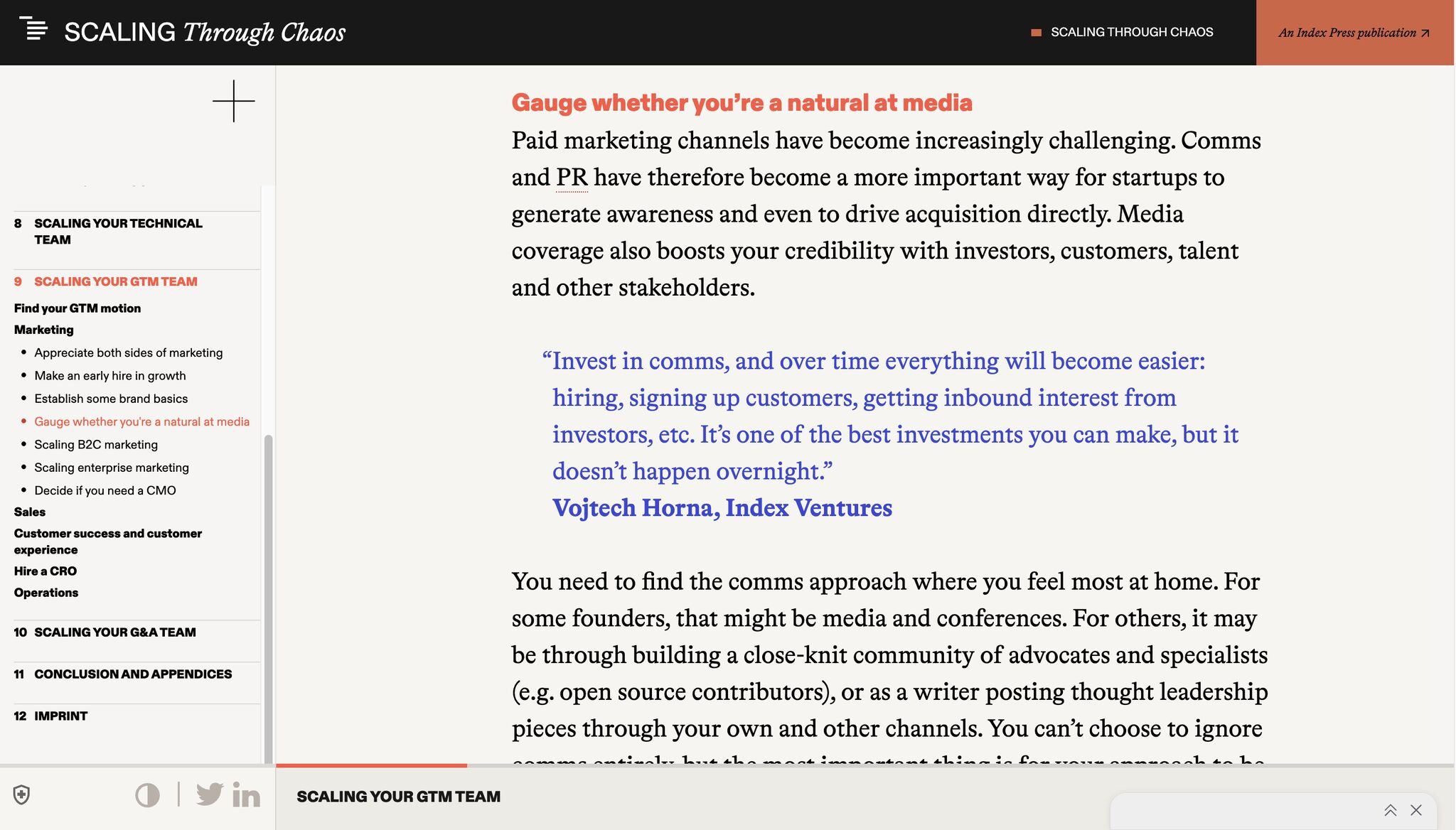When you should start doing PR?
Early-stage startups struggle a lot. With limited resources, they are building a product, convincing talents to join, fundraising, trying to comply with all regulations, learning different tools, and so on.
And PR seems to be over limits. Pitching journalists and getting zero replies seems to be a waste of precious time.
So, should you try, or is it better to focus on the product? But when is the best time to start doing PR then? Why do you see your fellow entrepreneurs making it to different media outlets?
In the recent "Scaling Through Chaos" book for founders by Index Ventures, it is said:
Paid marketing channels have become increasingly challenging. Comms and PR have therefore become a more important way for startups to generate awareness and even to drive acquisition directly. Media coverage also boosts your credibility with investors, customers, talent, and other stakeholders.
But it’s easier said than done. If you are not ex-Google, backed by a16z, otherwise, it might work.
A lot of startups approach it wrong. Some are paying PR agencies, waiting for them to secure coverage in top outlets. Others are trying to reach out to journalists, trying to hack the news hook.
Both are wrong.
Being an early-stage startup, with little to zero credentials, you only can get journalists' attention if you have something to bring to the (news) table.
Building relationships with journalists, understanding the media landscape, and crafting compelling narratives that resonate with your target audience can set the foundation for successful PR endeavors. Ultimately, the best time to start doing PR is when you have a clear understanding of your value proposition and can articulate how it stands out in the market.
It's our job to share the knowledge. Whether you're early-stage, pre-seed, or already funded, contact us to receive step-by-step advice for startups looking to get good press coverage without an agency.


